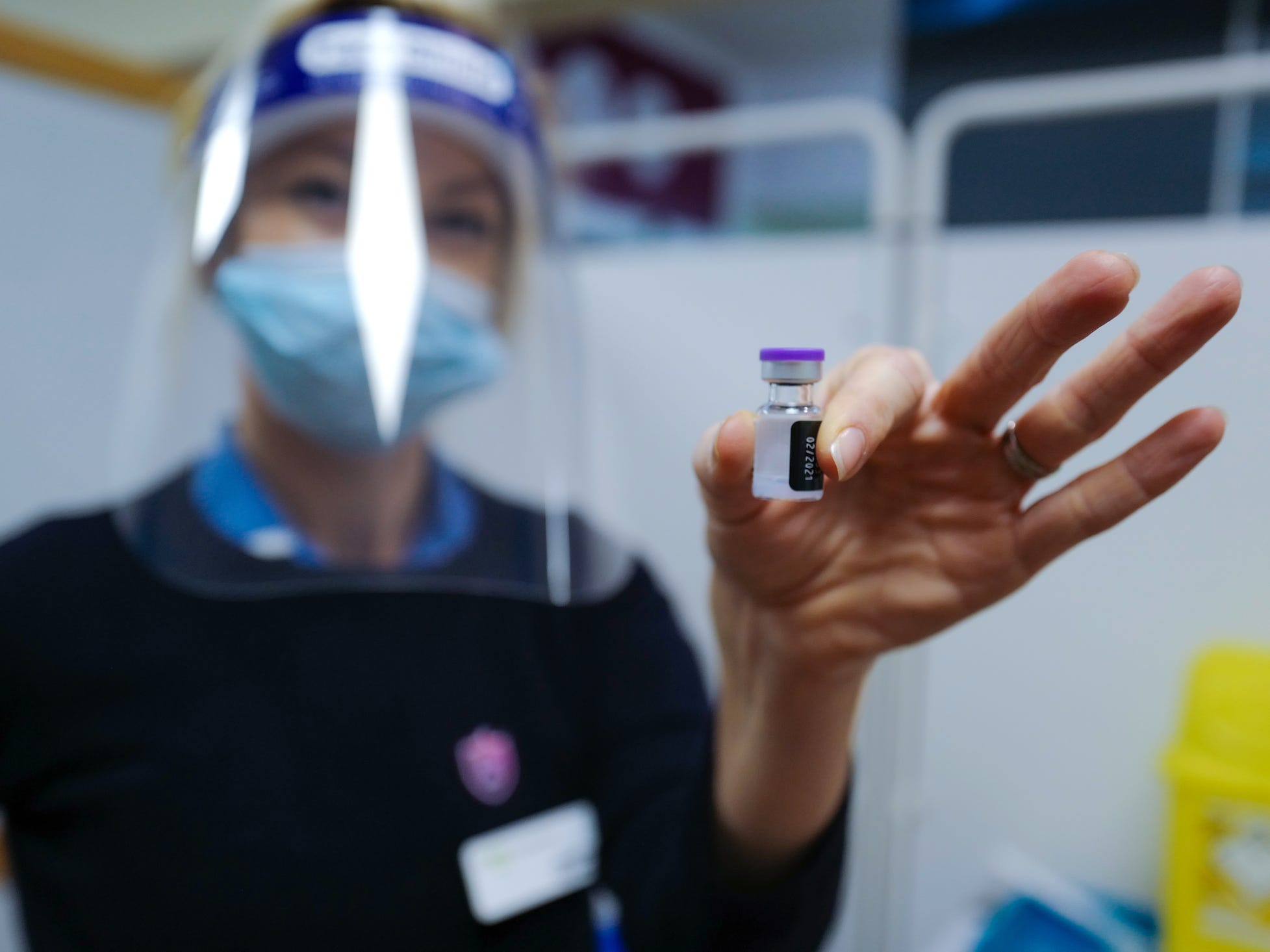
Hugh Hastings/Getty Images
- AstraZeneca may have included outdated data in its promising US vaccine trials results, officials said.
- An independent expert panel was "concerned" that AstraZeneca gave an "incomplete view of the efficacy data."
- AstraZeneca said Monday its shot was 79% effective against preventing COVID-19 with symptoms.
- See more stories on Insider's business page.
AstraZeneca may have used partially-outdated data when it reported promising US trial results on Monday, the US National Institute of Allergy and Infectious Diseases (NIAID) has said.
An independent expert panel that monitors trial safety was "concerned" that the information released by AstraZeneca was "outdated," which may have provided "an incomplete view of the efficacy data," the NIAID said late Monday night, in a highly unusual statement.
AstraZeneca said Monday that its COVID-19 vaccine was 79% effective against COVID-19 with symptoms, and 100% effective at preventing severe illness and hospitalization.
The results of this landmark US-based trial of more than 32,000 people could pave the way for US authorization and revive the shot's reputation in Europe, following more than 18 countries temporarily suspending the shot while regulators investigated potential side effects.
Read more: COVID Vaccine Tracker: AstraZeneca's shot proves safe and effective, and is headed to the FDA
The NIAID said AstraZeneca should work with the panel of experts, called the Data and Safety Monitoring Board (DSMB), "to review the efficacy data and ensure the most accurate, up-to-date efficacy data is made public as quickly as possible."
The NIAID is headed by Dr. Anthony Fauci, President Joe Biden's chief medical advisor, and is part of the National Institute of Health (NIH). The DSMB reports into the NIH.
Fauci told NBC Boston Monday, before the statement was released, that the Food and Drug Administration (FDA) would go "very carefully over all of that data, you can rest assured."
AstraZeneca did not immediately respond to Insider's request for comment.
Dr. Eric Topol, a clinical trials expert at Scripps Research Translational Institute in San Diego, told the New York Times that he had "never seen anything like this."
"It's so, so troubling," he said.
